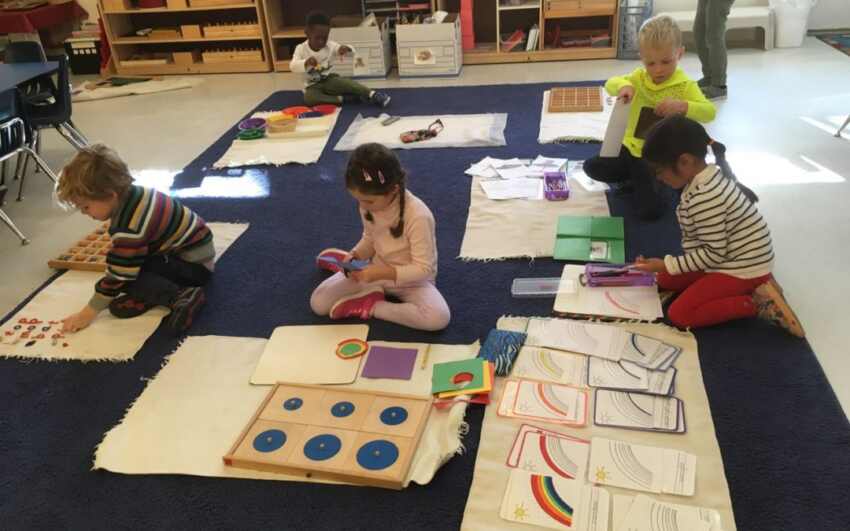Importance of Montessori teachers training course
Enhancing Classroom Management Skills: Montessori training
courses help educators develop effective classroom management
skills, including how to maintain a peaceful and organised
classroom environment, manage student behaviour, and build
positive relationships with parents and colleagues.
What is Montessori Education
More than a century now, the child-focused approach that Dr. Maria
Montessori, an Italian physician, developed for educating children has been
transforming schools around the globe.
As soon as you enter a classroom, you know that something different is afoot.
Montessori classrooms are immediately recognizable. You will see children
working independently and in groups, often with specially designed learning
materials; deeply engaged in their work; and respectful of themselves and their
surroundings.
The Montessori Method fosters rigorous, self-motivated growth for children and
adolescents in all areas of their development—cognitive, emotional, social, and
physical
Benefits of Montessori teachers training course
Choosing a Montessori environment for your child has many benefits. Known
for individually paced learning and fostering independence, the Montessori
Method also encourages empathy, a passion for social justice, and a joy in
lifelong learning.
Given the freedom and support to question, to probe deeply, and to make
connections, Montessori students become confident, enthusiastic, self-directed
learners. They are able to think critically, work collaboratively, and act
boldly—a skill set for the 21st century.
Each child is valued as a unique individual.Montessori education recognizes that children
learn in different ways, and accommodates all learning styles. Students are free to learn at
their own pace, each advancing as he is ready, guided by the teacher and an individualized
learning plan.
● Beginning at an early age, Montessori nurtures order, concentration, and
independence.Intentional classroom design, materials, and daily routines support the
student’s emerging “self-regulation” (the ability to educate one’s self, and to think
about what one is learning), in toddlers through adolescents.
● Students are part of a close, caring community. The multi-age classroomtypically
spanning 3 years—re-creates a family structure. Older students enjoy stature as
mentors and role models; younger children feel supported and gain confidence about
the challenges ahead. Teachers model respect, loving kindness, and a peaceful conflict
resolution.
● Montessori students enjoy freedom within limits.Working within parameters set by
their teachers and the classroom community, students are active participants in
deciding what their focus of learning will be.
● Students are supported in becoming active seekers of knowledge. Teachers
provide environments where students have the freedom and the tools to pursue
answers to their own questions. Internal satisfaction drives the child’s curiosity and
interest and results in joyous learning that is sustainable over a lifetime.
● Self-correction and self-assessment are an integral part of the Montessori
classroom approach. As they mature, students learn to look critically at their work,
and become adept at recognizing, correcting, and learning from their errors.
Raga 76 th batch
